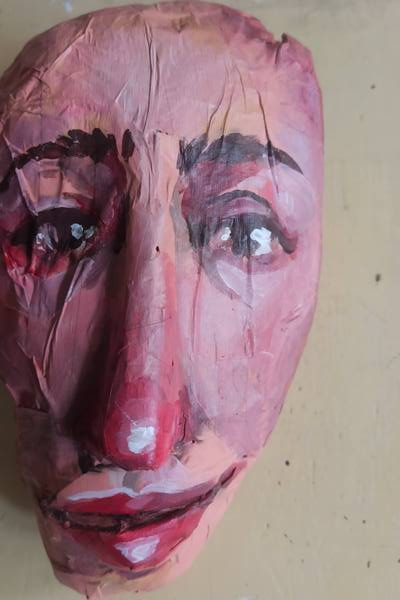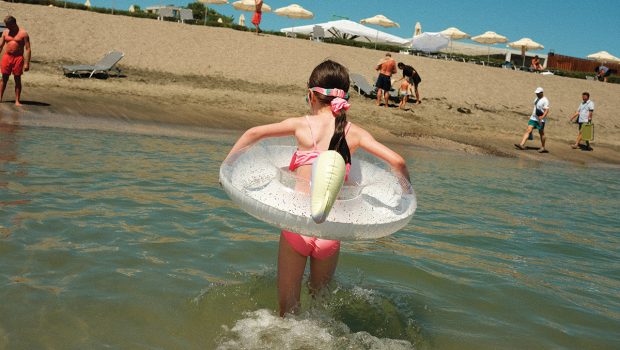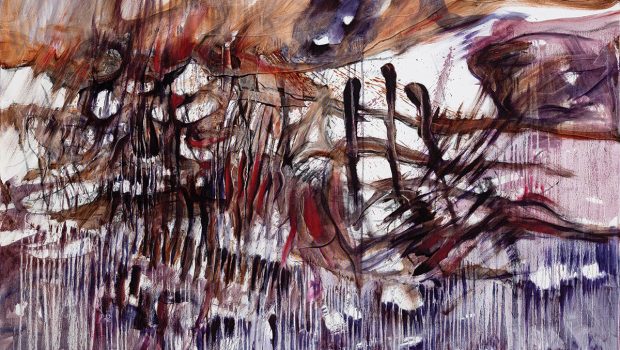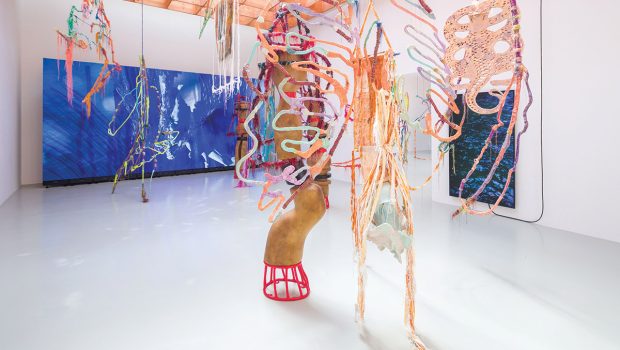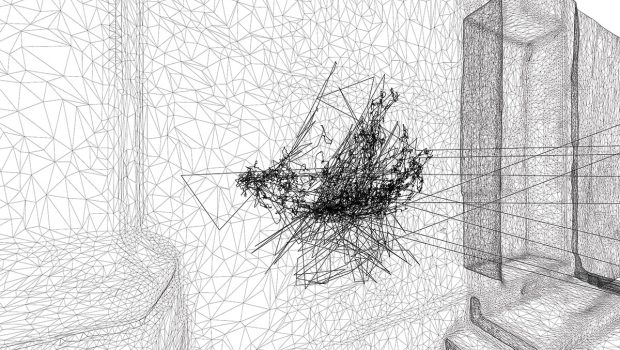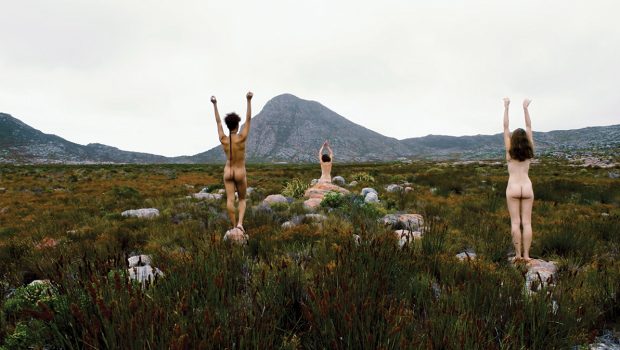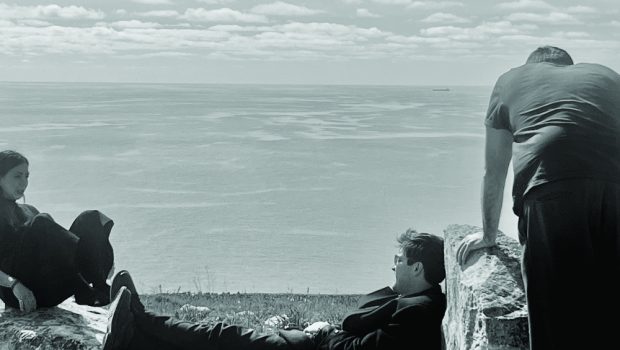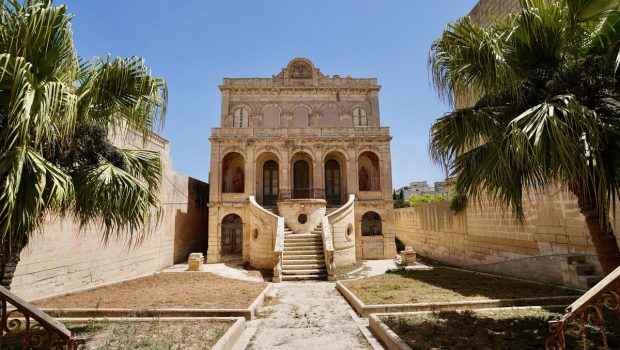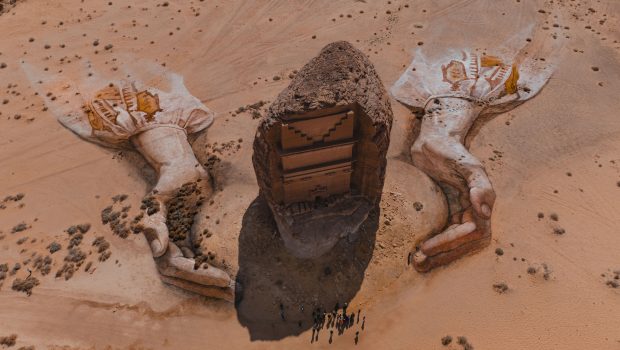No Time to Spare
The Spring artistic Programme at The Mill
No Time to Spare is a collective exhibition by Rachelle Deguara, Claire Farrugia and Sheldon Saliba and curated by Elyse Tonna. Opened on the 13th of October at The Mill, the exhibition is the second collective forming part of the SPRING Artistic Programme for Emerging Artists 2022 to 2024 by the Gabriel Caruana Foundation and supported by Arts Council Malta.
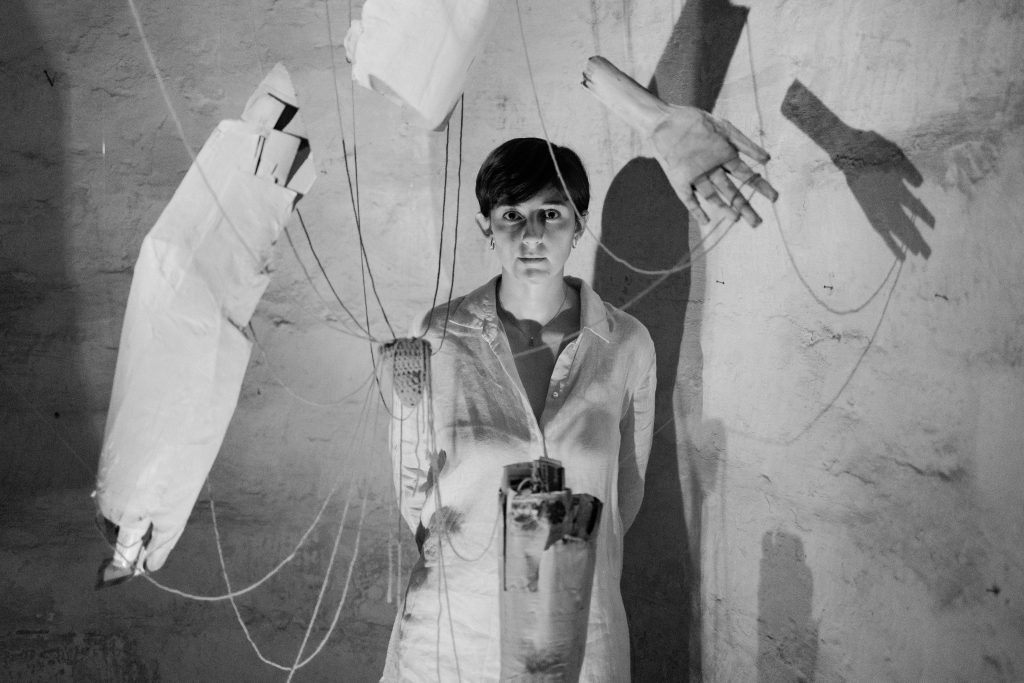
Elyse Tonna explains that “No Time to Spare is a collective call urging us to reflect upon the diverse forms of agency that shape our spaces, cultures and the interconnected world which extends beyond the human realm.” It is this agency and interconnectedness that has inspired Claire Farrugia’s (b. 1992) newly developed sculptural work featuring in the exhibition. Farrugia, an artist and a pharmacist, seeks to understand and explore our ever-evolving relationship with truth, reality and lies. Farrugia’s research revolves around the concept of liminality in the human experience, especially with regards to the dual nature of truths and lies, and how one can transition into the other. To explore these themes, Farrugia says that “I employ the human figure as the central subject and utilise painting, sculpture and installations as my main mediums of expression.” Farrugia graduated from the University of Malta with a Master’s in Fine Arts from the Department of Art and Art History.

According to Tonna “Speculation can transform and challenge linear, dualistic understanding and redirect innovation practices”. Going beyond the now and the linear has been Sheldon Saliba’s (b.2000) guiding principle. In fact, Saliba reveals that his work “explores what lies ahead for islands, speculating on the potential futures for these threatened lands, whilst also considering the fate of non-human inhabitants, emphasising on climate-displaced flora”. Saliba is a visual artist based in Malta with a background in art history. His current practice explores rural and built environments, focusing on land use and the influences of the Anthropocene on natural and human made materials. Through interpretations of cabinets of curiosities and archival material, complemented with sculptural installations, he challenges contemporary realities approached with an element of nostalgia, superimposing speculations about the future.
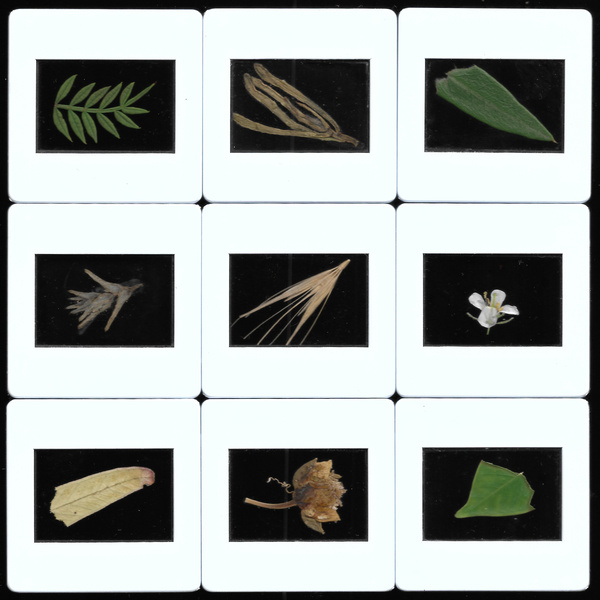
Elyse Tonna explains that “the title of the exhibition lends its name from a collection of essays by Ursula K. Le Guin, to whom the future was not merely a destination, but rather an encounter with otherness, suggesting other ways of looking both outwards and inwards”. The encounter with otherness is explored by Rachelle Deguara (b. 1997) who explores the impact of technology on our identity, delving into the potential consequences of a technological apocalypse. Deguara underlines that this apocalypse “is not the typical sci-fi scenario portrayed in movies but rather an intellectual one, where alien intelligence consumes and reproduces humanity’s culture, leaving little of our own”.Deguara, an interdisciplinary artist, is currently reading for a Bachelor’s degree in Performing Arts. Her academic interests primarily revolve around delving into the depths of subversion within dominant mythologies in relation to the concept of identity. She explores the intricate complexities that exist between the juxtapositions of power and subservience, constraint, and liberation, as well as subjugation and empowerment.
The Gabriel Caruana Foundation’s SPRING Programme for Emerging Artists is a versatile initiative designed to cater to artists’ unique needs. Comprising three interlinked facets – the Creative Process led by Elyse Tonna, the Artistic Programming overseen by Raffaella Zammit, and the Engagement Process guided by Martina Camilleri – it provides a comprehensive support structure. Tonna collaborates closely with artists to critically explore contemporary issues, developing thematic exhibitions. Zammit fosters values of care and collaboration through tailored activities. Camilleri facilitates dialogues and workshops, expanding discourse on contemporary issues with the wider public. Together, these components foster artistic growth and community engagement within the SPRING Programme.
No Time to Spare runs until the 3rd of November at The Mill – Art, Culture and Crafts Centre, Birkirkara. More information about the Foundation’s artistic programming can be found here https://gabrielcaruanafoundation.org/events/. The SPRING Artistic Programme for Emerging Artists by the Gabriel Caruana Foundation is supported by Arts Council Malta.
